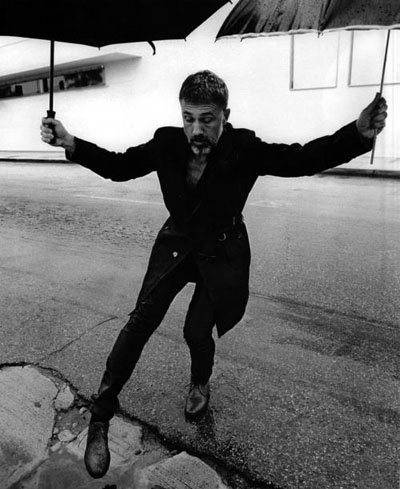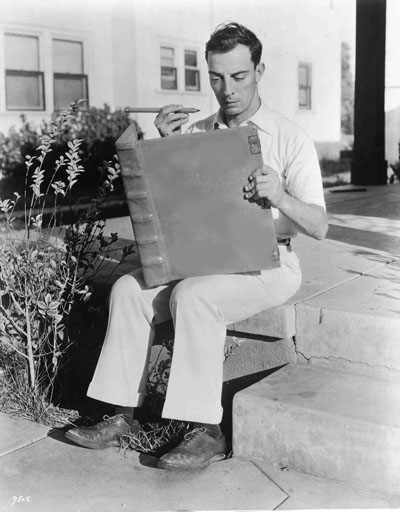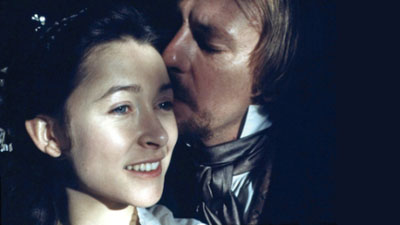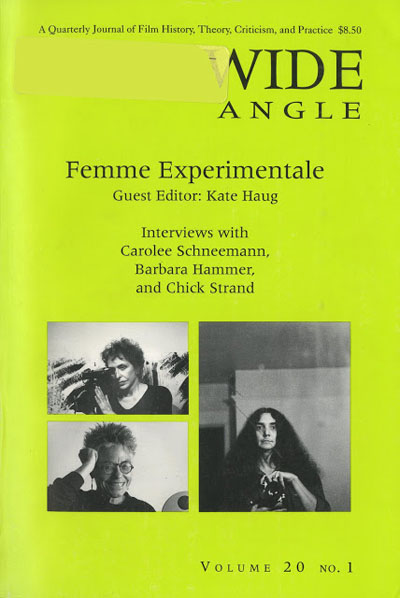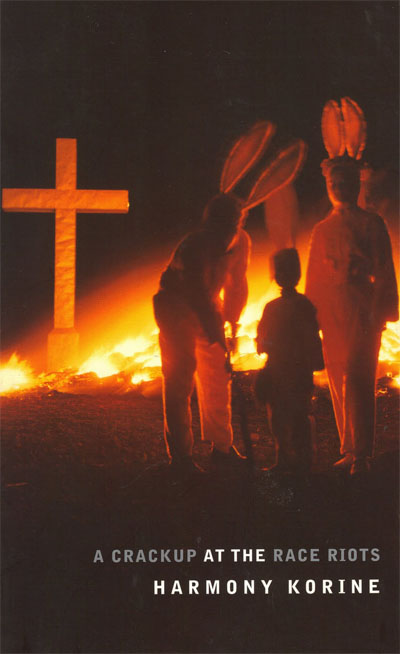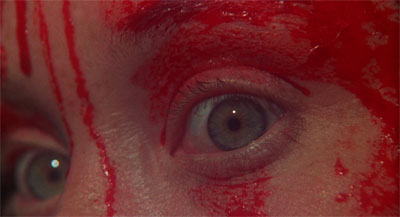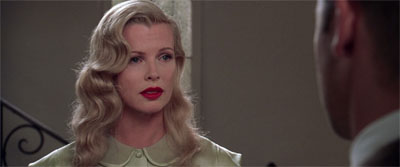This week, we saw Tribeca roll on and festivals in Boston and San Francisco open, but the minds of many are focused on Cannes. On Wednesday, the festival announced one hell of a jury: Daniel Auteuil, Vidya Balan, Naomi Kawase, Nicole Kidman, Ang Lee, Cristian Mungiu, Lynne Ramsay, and Christoph Waltz. Presided over, of course, by Steven Spielberg. By the way, “bizarre Austrian how-did-I-not-know-this fact of the day,” tweets Neil Young: “Michael Haneke & Christoph Waltz had the same stepfather (Alexander Steinbrecher).”
Meantime! “To mark the restoration of one of the masterpieces of world cinema, Alfred Hitchcock’s Vertigo, the Festival de Cannes has invited its heroine, Kim Novak, to grace the event with her presence.”
Update: Just now, Cannes has announced that it’s added Jim Jarmusch’s vampire romance Only Lovers Left Alive to the Competition lineup. Michael Rosser for Screen: “The film stars [Tom] Hiddleston as underground musician Adam who reunites with his lover Eve, played by [Tilda] Swinton, after he becomes tired with the direction of human society. The pair have a love story that spans several centuries. But their love is tested by Eve’s wild and uncontrollable sister Ava, played by Mia Wasikowska.” John Hurt and Anton Yelchin appear as well.
Cannes has also added Le Dernier des injustes, “a Holocaust docu-feature from France’s Claude Lanzmann (Shoah) into an out-of-competition berth,” reports John Hopewell in Variety, as well as three films to Un Certain Regard: “Hiner Saleem’s My Sweet Pepperland, set on the border between Turkey and Iraq, Katrin Gebbe’s first feature Tore Tanzt, and Argentine Lucia Puenzo’s Wakolda, about a former Nazi who seeks refuge in a village in Patagonia.”
In other news. David O. Russell, who had to shut down work on American Hustle in Boston for a day last week (the thriller will feature Christian Bale, Amy Adams, Robert De Niro, Jennifer Lawrence, and Bradley Cooper, and work has since resumed), has been named guest director of June’s Los Angeles Film Festival and, along with Lake Bell and Barbara Kopple, will receive a Screenwriters Tribute at the Nantucket Film Festival, also in June.
“On Monday Night, City of Lights, City of Angels—the annual French film festival in Hollywood—concluded by awarding Lebanese director Ziad Doueiri’s Tel Aviv-set thriller The Attack with three top prizes including the Audience Award and the Special Critics’ Prize,” reports Ryan Lattanzio at Thompson on Hollywood. Also: At the 48th Karlovy Vary International Film Festival in June, “Oliver Stone will be honored with the Crystal Globe Award for outstanding artistic contributions to world cinema” and Agnieszka Holland “will serve as president of the jury.”
John McElwee, who maintains the always amazing Greenbriar Picture Shows blog, has a book coming out, Showmen, Sell It Hot! Movies as Merchandise in Golden Era Hollywood.
“The fall of Alta films, the flagship of European Film distribution in Spain, is a very worrying sign that our cultural industries are in great danger.” A “red alert” at Cineuropa from Alexandra Lebret, Managing Director of European Producers Club.
While covering CinemaCon for Coming Soon, film critic Ed Douglas was diagnosed with acute leukemia. And he doesn’t have health insurance. His friends quickly put together a campaign, “Help Ed Douglas Kick Cancer’s Ass!” As of this writing, they’re moving pretty quickly towards realizing their goal, too. Now they just need that extra push…
Seattle’s Northwest Film Forum has launched a Kickstarter campaign to raise $50K to cover costs of going digital.
TBWAChiatDay New York has come up with a campaign for the Brklyn Film Festival incorporating software developed by IT student Melvyn Laily. Posters present “a unique, scannable fingerprint” (Anna Richardson, Creative Review) of last year’s award-winners. Go take a look.
Laure Prouvost, known “for her witty, absurd films-cum-installations,” has been nominated for this year’s Turner Prize along with Lynette Yiadom-Boakye, Tino Sehgal, and David Shrigley, reports the Guardian‘s Charlotte Higgins. In March, Guardian art critic Adrian Searle toured Prouvost’s installation at Whitechapel Gallery.
Reading. The rediscovery of the month, evidently, is Roland Joffé’s adaptation of John Ford’s 1630s play ‘Tis Pity She’s a Whore. “Originally broadcast by the BBC on 7 May 1980, it had a mixed reception, largely due to its controversial incest theme, and was never broadcast again,” notes Luke McKernan. “I have seldom seen a more fully realized and effective coming together of theater, film and television, and of a past age and ours.” John Wyver adds that “by enhancing the mercantile context and developing the focus on financial exchange that is a key element of the original text, ‘Tis Pity She’s a Whore becomes an effective riposte to what was then the new Thatcher government’s concern for ‘Victorian values’ … The true greatness of the film, however, lies in the unremitting harshness of its dark vision of the world.”
“I firmly believe that we’re all hicks now when it comes to knowing what’s ‘going on’ in the world of cinema,” writes Jonathan Rosenbaum in a state-of-things sort of piece “about the present and future of cinema, both as a medium and as an art.” And he’s posted another on “the personal nature of Resnais’s cinephilia.” Plus: Not Coming‘s Rumsey Taylor has a few questions for Rosenbaum regarding acid westerns and Jim Jarmusch‘s Dead Man (1995).
Stoffel Debuysere has translated a lengthy interview with Danièle Huillet and Jean-Marie Straub conducted in the summer of 1999 (Pedro Costa was around); it then appeared in the September issue of Cahiers du cinéma.
Catherine Grant has put together another one of those invaluable, nearly inexhaustible collections of links to scholarly studies. The focus of her latest is slow cinema.
Making Light of It has posted “Femme Experimentale,” a 1998 issue of Wide Angle featuring interviews with Carolee Schneemann, Barbara Hammer, and Chick Strand.
In the Spring 2013 issue of Bomb, P. Adams Sitney interviews Coleen Fitzgibbon, noting that the rediscovery of her “philosophically radical cinema of the 1970s, 30 years later, reawakened an enthusiasm for the medium in the artist herself, who then embraced the latest technologies, including the iPhone, to make new films and reshape her ‘forgotten work.'” Also, Michael Snow writes an open letter of appreciation to composer Aki Onda.
“Cinephile extraordinaire Gene Stavis houses more than 1500 16mm film prints in his apartment overlooking the East River in Manhattan, which is watched over by a large photograph of his mentor, the mighty Cinémathèque Française founder Henri Langlois.” So begins Dan Callahan‘s profile at the Chiseler, chock full of anecdotes about Mae West, Groucho Marx, and Fritz Lang—for starters. And Callahan‘s profile of Sylvia Sidney, who saw her heyday in the 1930’s, features this delicious quote from Tennessee Williams: “She was always so fragile and plaintive. She appeared to need protection. Let me tell you: Sylvia needs no protection. She may look frail, but look in that exquisite purse she carries with her: it contains the balls of thousands of men who annoyed her; the hearts of those who crossed her; and the locations of those who betrayed her.”
Also in the Chiseler: Jim Knipfel on Preston Sturges’s The Sin of Harold Diddlebock (1947), the last picture to star Harold Lloyd.
Samuel Hoffenstein is credited, albeit not alone, for writing the screenplays for Otto Preminger’s Laura (1944) and Ernst Lubitsch‘s Cluny Brown (1946), among many, many other films, and yet, when Farran Nehme began researching him, she came up with next to nothing. But her post about her search has turned into something of a crowdsourcing project.
Speaking of Lubitsch, David Cairns: “With The Oyster Princess [1919], he was out to make something giddily strange, broadly caricatured, and very silly. He succeeded!”
At the Millions, Matthew Specktor, a founding editor of the Los Angeles Review of Books and author of a new novel, American Dream Machine, looks back to the moment when “the ‘middle class movie’ was being told it could no longer justify its continued existence”—and considers the implications.
Harmony Korine is re-releasing his 1998 novel A Crack Up at the Race Riots, “just in time,” as Hillary Weston puts it, “for all those sixteen year old kids who went to see Spring Breakers and walked out of the theater clutching their smartphones, faces permanently frozen in an expression of, ‘What the hell, man, that wasn’t like The Hangover but with chicks?!'” At any rate, at BlackBook, she asks him why.
“Like his adoptive patron Werner Herzog, Harmony Korine is concerned with how people behave when culture recedes,” writes Tom McCormack for the Believer. “But where Herzog is obsessed by characters who test themselves and summon their strength to fight the wilderness and its elements, Korine is drawn to people who have simply been left behind…. In Spring Breakers, Korine’s concerned with re-associating our world and reasserting an ancient connection mostly lost on contemporary US culture. The American Pastoral is not at odds with the crazy violence of America. It’s merely its most natural setting.”
“I think that Spring Breakers is a fascinating experience, and makes for a great unofficial Florida youth trilogy with Trans (Julian Goldberger) and Bully (Larry Clark),” writes Zach Campbell. “I would also say, however, that feminist objections with this film strike me as more or less on the mark.”
“Andy Griffith was a surrogate father.” Evan Smith Rakoff is dead serious about this and explains at considerable length for the Los Angeles Review of Books.
Wednesday was River Phoenix Day at DC’s.
“What is the best movie of the last 25 years?” asks Matt Singer, and the Criticwire network responds.
Summer movie previews: Indiewire, Las Vegas Weekly, and Vulture.
Viewing. David Bordwell‘s posted a third full-length lecture, “CinemaScope: The Modern Miracle You See without Glasses!” (52’57”). “I’m also providing the chapter on Scope from Poetics of Cinema. Think of the lecture as the DVD and the chapter as the accompanying booklet.”
At Press Play, Kevin B. Lee talks with video essayist Joel Bocko: “In ‘Comedy Countdown,’ his two part video on Modern Times, Bocko weaves together voiceover tracks based on insights by three great writers: Otis Ferguson, Roland Barthes, and Graham Greene. Even more impressive is his video comparing Brian De Palma’s Hi Mom!, Carrie and Scarface, weaving together their respective bloody demises. The contrast between Carrie and Scarface is especially evocative as feminine yin and masculine yang: ejaculatory vs. menstrual rage. Bocko’s tastes are eclectic, as evidenced by his video essay on Marco Bellocchio‘s underseen Fists in the Pocket.”
And there are two new 30-second teasers worth taking a look at, one for The Red, directed by Antonio Campos, and the other for Sion Sono’s Why Don’t You Play In Hell?
New York. “Jonas Mekas calls his blissed-out new movie Out-Takes From the Life of a Happy Man,” notes Manohla Dargis in the New York Times. “It’s an honest, direct title for a transcendently lovely and delicate work created from images that didn’t make it into the filmed diaries he made from 1960 to 2000…. In tone, mood and image quality, it is suffused with light.” More from Amy Taubin at Film Comment. At Anthology Film Archives.
List. Time Out London has “brought together 101 experts to choose the 100 best romantic movies ever made.”
In the works. Asif Kapadia, who won a BAFTA and several other awards for his documentary Senna, will make film about Amy Winehouse incorporating previously unseen footage. Dave Itkoff has more in the New York Times.
“HBO and Guillermo del Toro are teaming on Monster, developing a potential series culled from a series of 18 volumes of Japanese Manga by author Naoki Urasawa,” reports Deadline‘s Mike Fleming, Jr.
And Deadline‘s Nellie Andreeva reports that James Ellroy’s shopping a sequel to L.A. Confidential as a TV series.
At the Playlist, Kevin Jagernauth reports that Colin Firth, Emily Blunt, Adam Sandler, and Charlize Theron are lined up for John Madden’s Murder Mystery: “Penned by Zodiac and The Amazing Spider-Man writer James Vanderbilt, the Agatha Christie-esque story follows an American couple on honeymoon in Europe who have to go on the run after witnessing and being accused of murder, and are drawn into a web of international intrigue.”
Also, South African rap duo Die Antwoord will reportedly play themselves in Neill Blomkamp’s upcoming sci-fi comedy Chappie.
“In what amounts to their first move since winning the Best Picture Oscar for Argo, George Clooney and Grant Heslov are planning to produce Coronado High, a feature film adaptation of Joshuah Bearman’s upcoming article,” reports TheWrap. Bearman wrote the Wired article Argo was based on and this new piece has yet to be published. Evidently, though, it’s about teenage drug smugglers in an affluent resort city near San Diego.
More browsing? See Mike Everleth, Steve Greene, and John Wyver.
For news and tips throughout the day every day, follow @KeyframeDaily on Twitter and/or the RSS feed. Get Keyframe Daily in your inbox by signing in at fandor.com/daily.

